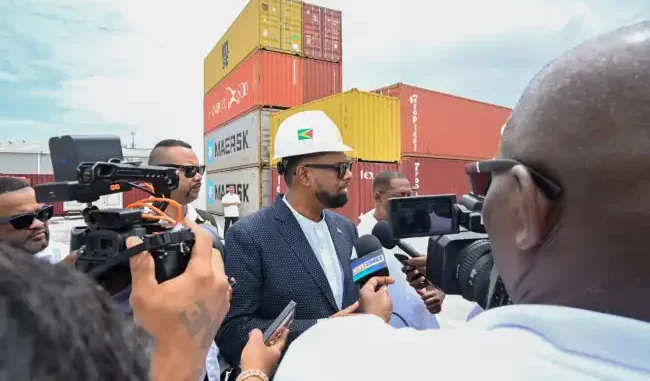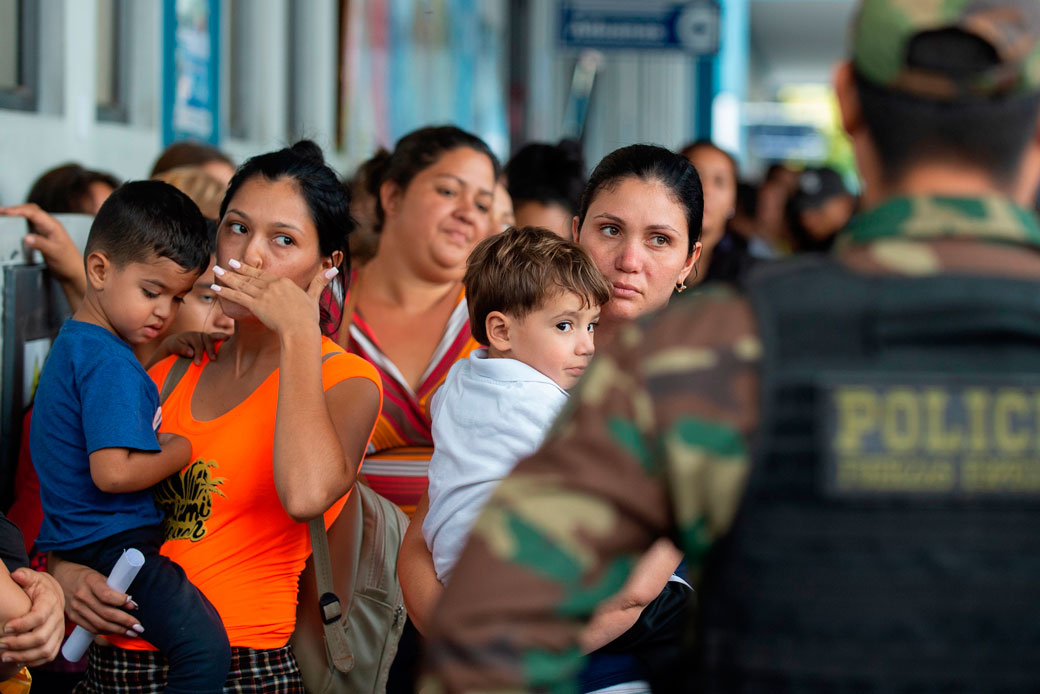
Fizzle Out:
On January 27, 2025, U.S. Secretary of State Marco Rubio and President Ali agreed to jointly tackle the regional challenge of illegal migration. Secretary Rubio also reaffirmed the United States’ unwavering support for Guyana’s territorial integrity, especially concerning recent aggressive actions by Venezuelan President Nicolás Maduro.
In recent diplomatic engagements, the government of Guyana has confirmed ongoing discussions with the United States regarding migration-related matters. President Dr. Mohamed Irfaan Ali has explicitly stated that these talks do not include discussions on Guyana accepting deportees from third countries. The primary focus is on addressing logistical challenges, improving migration policies, and enhancing bilateral cooperation to manage the movement of people between the two nations.
This report delves into the context of these discussions, their implications for Guyana and the broader Caribbean region, and the measures being implemented to ensure efficient migration management.
Context of US-Guyana Migration Discussions
The discussions between Guyana and the United States come at a time when migration issues have become a pressing concern globally. In the Western Hemisphere, countries like Guyana are grappling with both emigration and immigration challenges, making migration a critical topic in diplomatic relations.
Why Migration Matters?
Migration is a key issue in international relations, affecting economic stability, national security, and social dynamics. Guyana, like many Caribbean nations, has seen significant migration flows over the years. Many Guyanese nationals have migrated to the United States, Canada, and other developed nations in search of better economic opportunities. Conversely, Guyana has also experienced an influx of migrants, including Venezuelans fleeing their country due to economic and political crises.
Given this backdrop, migration discussions between Guyana and the US are essential for ensuring that both legal and illegal migration challenges are managed effectively.
Key Aspects of the Discussion
President Ali has emphasized that while Guyana and the US are discussing migration logistics, the country is not engaging in any talks about accepting deportees from third countries.
1. Addressing Migration Logistics
One of the main topics of discussion is the logistics of travel between Guyana and the US. This includes:
- Streamlining visa processes to ensure smooth entry for Guyanese travelers and students.
- Enhancing border security to prevent illegal migration and human trafficking.
- Strengthening cooperation in managing flights and travel routes between the two countries.
2. No Agreement on Deportees
President Ali has made it clear that Guyana is not negotiating any agreement to accept deportees from the US or other third countries. This statement comes in response to speculation that Guyana might be pressured into accepting deportees who are not its citizens. The government has reiterated that any migration agreement must serve the national interest and not burden the country’s resources.
3. Tackling Illegal Migration
Guyana and the US are exploring ways to manage illegal migration more effectively. This includes:
- Border security improvements: Guyana has announced plans to install advanced scanners at all ports of entry by the end of the year.
- Information sharing: Strengthening intelligence collaboration to track illegal migration routes and human trafficking networks.
- Public awareness campaigns: Educating citizens on the risks of illegal migration and the legal pathways available.
Implications for Guyana and the Region
The ongoing discussions between Guyana and the United States have several potential implications:
Economic Impact
Efficient migration policies can boost Guyana’s economy by ensuring that skilled workers have access to international opportunities while also attracting skilled migrants to contribute to local development. Improved migration management can also enhance tourism and business travel between the two nations.
National Security Considerations
Managing migration effectively helps strengthen national security. By tightening border controls and enhancing screening processes, Guyana can reduce human trafficking, illegal migration, and associated criminal activities.
Bilateral Relations
Guyana’s engagement with the US on migration matters is a testament to the strong diplomatic ties between the two countries. While the discussions do not include deportees, they signify a collaborative approach to addressing mutual challenges.
Future of US-Guyana Migration Policies
Looking ahead, migration policies will continue to be an important aspect of Guyana-US relations. Potential developments include:
- Enhanced visa programs: Facilitating travel and employment opportunities for Guyanese nationals.
- Stronger enforcement measures: Combatting illegal migration through technology and intelligence sharing.
- Regional cooperation: Collaborating with other Caribbean nations to create unified migration strategies.

Conclusion
Guyana’s ongoing discussions with the United States on migration matters reflect a proactive approach to addressing migration challenges while safeguarding national interests. President Ali’s clarification that deportees are not part of these talks underscores Guyana’s commitment to managing migration on its own terms. As the country continues to strengthen its migration policies, these efforts will contribute to economic stability, national security, and stronger international partnerships.
Leave a Reply